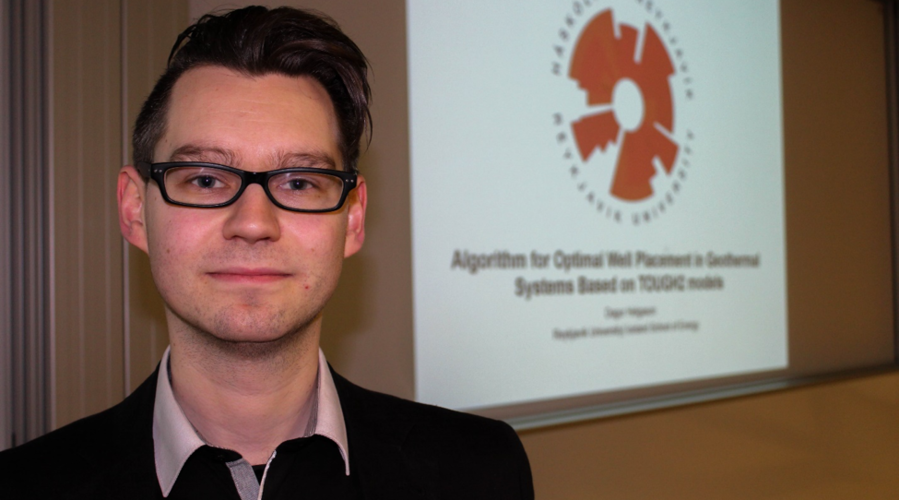MSc Thesis: Algorithm for Optimal Well Placement in Geothermal Systems Based on TOUGH2 Models
Dagur Helgason successfully defends his master's thesis
REYKJAVIK, January 11 - Dagur Helgason, first in the new year, successfully defends his master's thesis project today. Dagur, a Sustainable Energy Engineering student, has developed an algorithm for determining the optimal placement of a well in geothermally active areas. On this project, he worked hand in hand with a research group, Operations Research for Subsurface Modelling, as part of a collaborative effort between Reykjavik University, University of Iceland and Landsvirkjun.
With renewable energy becoming more prevalent in the world around us, geothermal has lagged behind, showing little growth compared to other renewable sources. This is in part due to it's high capital cost. Geothermal well construction accounts for roughly one third of the capital cost, with high associated risk. It is thus imperative to ensure the highest possible success rate and value creation for these wells.

In order to address this, Dagur developed an algorithm using a numerical TOUGH2 model of a theoretical geothermal system to evaluate the optimal well placements based on a net present value estimation. The algorithm was tested using two well types within this hypothetical model and found the optimal wells to be in the hottest parts of the model at depth and in the upper heat zone, directly above the heat source in the case of both well type setups. The algorithm was also subjected to a sensitivity and processing time analysis with the hypothetical model as an input model. The sensitivity analysis showed that the models results were most sensitive to changes in reinjection enthalpy, discount rate and the power plants thermal efficiency. The processing time analysis showed that the algorithm can potentially be run in a reasonable enough time to serve as a tool for decision making.
Great work and congratulations Dagur.
To view Dagur's research abstract, click here .
